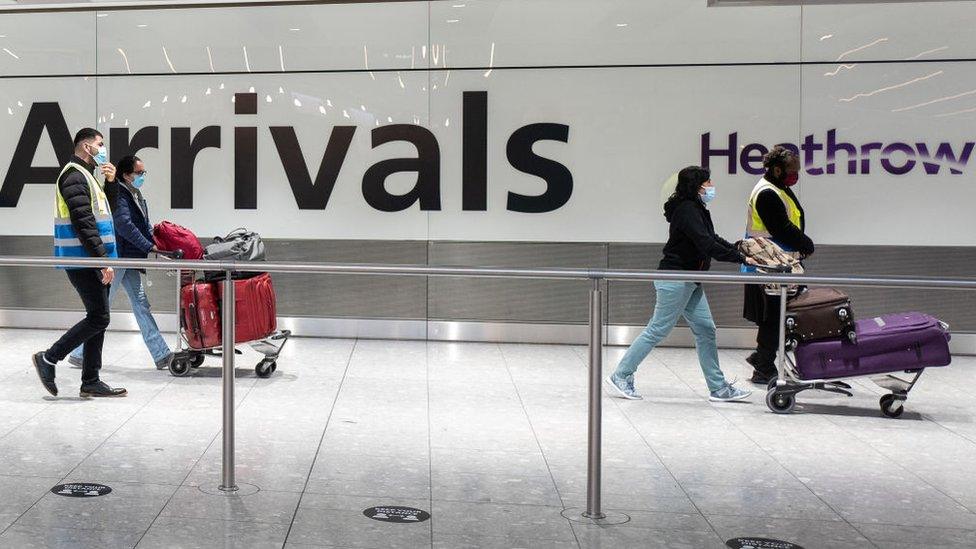Heathrow Airport: Home Office must 'get a grip' on border delays
- Published
- comments
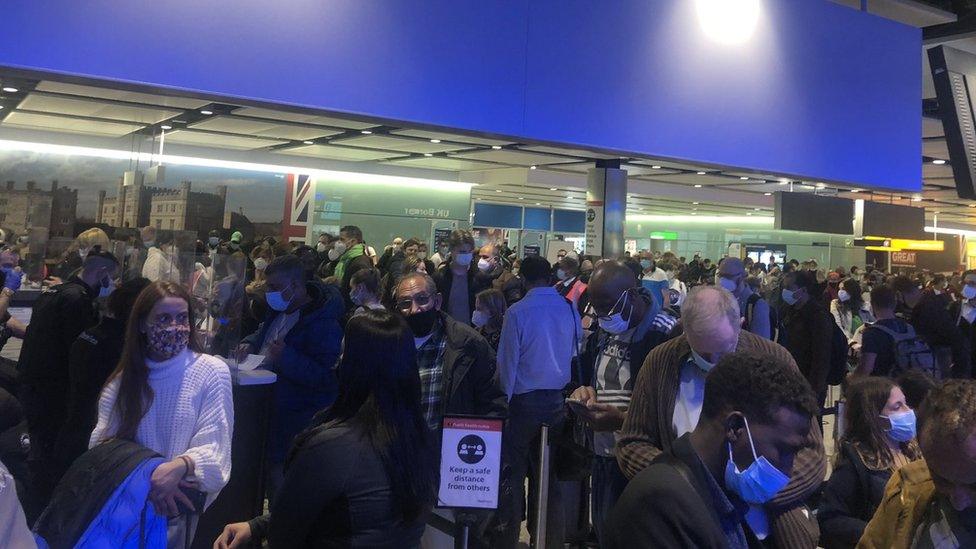
Queues at Heathrow Airport last month
The boss of Heathrow Airport has told the Home Office to "get a grip" on bottlenecks still causing long delays getting people through border control.
John Holland-Kaye said he was not confident Border Force was ready to cope if travel restrictions are eased on 17 May.
Some passengers have faced six-hour delays, but it's a "completely fixable problem", he told the BBC.
The Home Office said paperwork and health checks would mean more delays.
But Mr Holland-Kaye said that despite Heathrow seeing only 10% of normal traffic passing through the airport, Border Force still had the same staffing levels.
Last month, there were reports of passengers at the UK's biggest airport having to wait seven hours to pass through immigration control, and three-hour waits were commonplace.
On Thursday, Mr Holland-Kaye told the BBC that six-hour queues were still "not uncommon".
"We have less than 10% of our normal passengers, but they [Border Force] have no fewer staff than they have before the crisis. So, this is entirely manageable by BF if only they man their desks properly."
International travel restrictions are not due to be eased until 17 May at the earliest, but there are fears that border control delays could worsen when measures are relaxed.
"We have not seen quite enough action to ensure we are confident that Border Force can cope on 17 May," Mr Holland-Kaye said.
The Heathrow chief executive said the Home Office must "get a grip on this to make sure that the Border Force does not become the choke on the UK economic recovery".
A Home Office spokesperson said: "We are in a global health pandemic, and people should not be travelling unless absolutely necessary.
"Queues and wait times will be longer if passengers have not completed the necessary requirements to enter the UK. Airlines are responsible for making sure that their passengers have completed all the necessary requirements, and airports have a crucial responsibility for ensuring travellers can social distance at passport control.
"Border Force is checking that every passenger has complied with current health measures when arriving at the border. Passengers should currently expect queues and wait times to be longer than normal."
Transport Secretary Grant Shapps, promised delays will ease once paperwork starts to be automated at border controls.
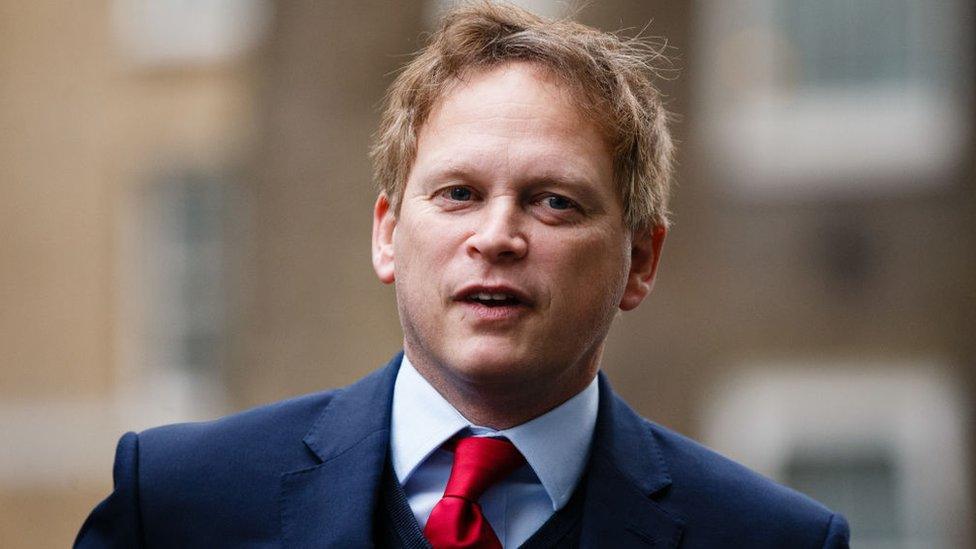
Transport Secretary Grant Shapps pledged travel delays will ease
"As we move towards the unlock of international travel we will be addressing this issue, not least through beginning to automate the electronic e-gates with the pre-departure form," he told the House of Commons.
On Thursday, the airport revealed it had sunk a further £329m into the red in the first three months of the year, bringing total losses since the start of the pandemic to £2.4bn.
Just 1.7 million passengers travelled through the airport during the quarter, down 91% on the period in 2019.
Mr Holland-Kaye said the figures revealed the scale of the Covid hit.
Aviation 'devastated'
Cargo volumes are also down 23% on 2019, underlining how a lack of flights affects UK trade with the rest of the world, he said.
But Mr Holland-Kaye hoped this was as bad as it gets now that lockdown restrictions are easing and economies are opening up.
"These results show how Covid has devastated the aviation sector and British trade," he said. "Restarting international travel from May 17 will help to kick-start the economic recovery, allowing exporters to get their goods to market, as well as reuniting families who have been separated for over a year."
However, he anticipated it would be a long time before travel returned to pre-pandemic levels because of uncertainty over government policy.
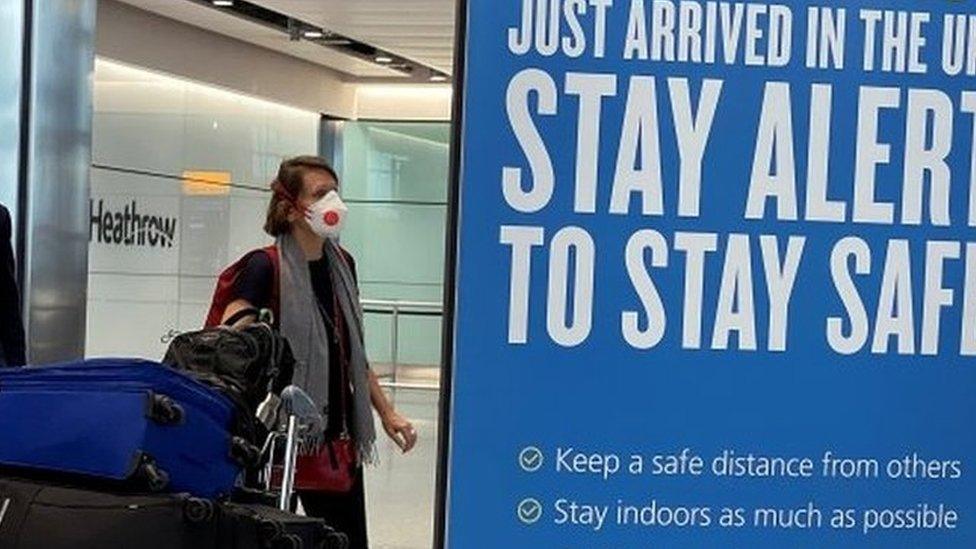
Despite saying there was strong underlying demand for travel, the airport said it had cut its passenger forecast for the year to between 13 and 36 million. In 2019, 81 million people passed through Heathrow, which is owned by investors including Spain's Ferrovial, the Qatar Investment Authority, and China Investment Corp.
Mr Holland-Kaye said that cost-cutting to preserve cash had put the airport in a strong position to benefit from a recovery in air travel when it comes.
The aviation industry is hoping that process will start next month if travel restrictions are eased as planned. However, uncertainty remains about where people will be able to go, and how digital vaccine passports will work.
Mr Shapps has said he will chair a meeting of G7 transport ministers next week to discuss vaccine passports before announcing which countries would be open to Britons for travel in early May.
The pandemic has hit airlines across the world - with an estimated 50 companies gone out of business - as well as commercial plane-makers Airbus and Boeing.
On Thursday, Airbus posted a 2% fall in revenues to €10.4bn (£9bn) for the first three months of 2021, although it expects deliveries of aircraft to customers to pick up during the year.
"The first quarter shows that the crisis is not yet over for our industry and that the market remains uncertain," said Airbus chief executive Guillaume Faury.
Related topics
- Published29 April 2021
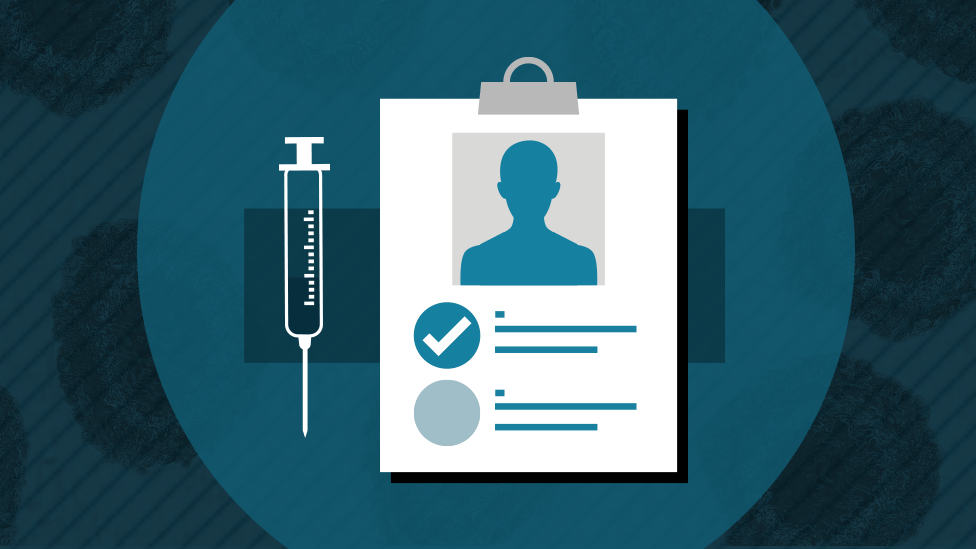
- Published27 April 2021
